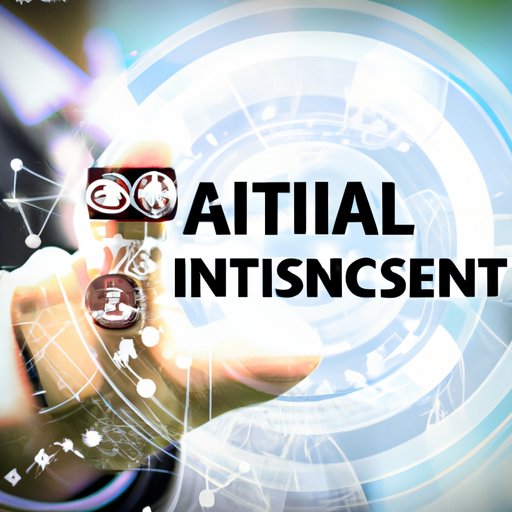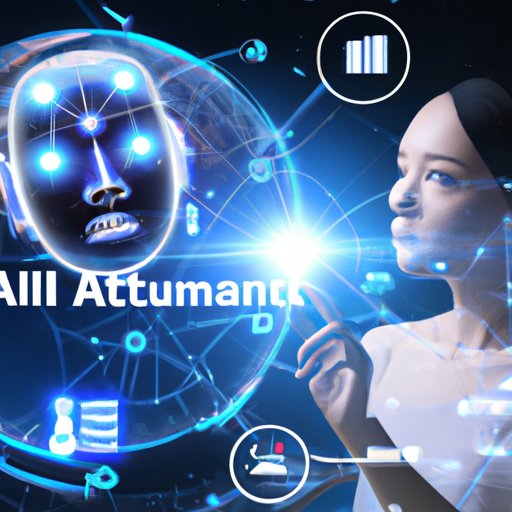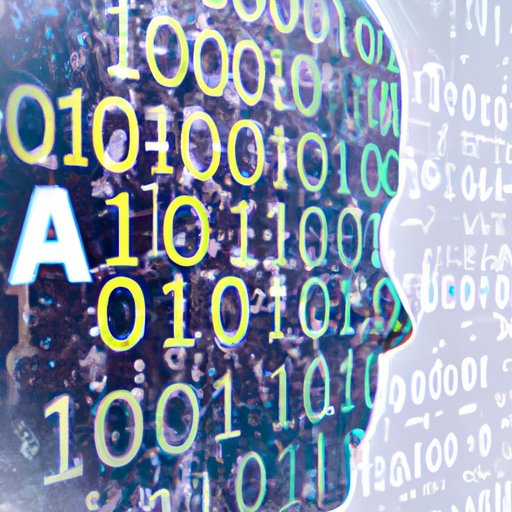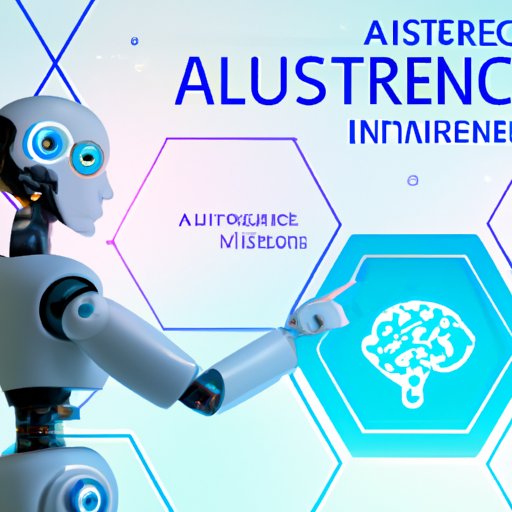Introduction
Artificial intelligence (AI) is a rapidly evolving field of computer science that involves simulating human cognition and behavior in machines. It has become increasingly popular in recent years due to advances in machine learning, natural language processing, and robotics. As AI technology continues to develop, it raises important questions about its potential impact on human life and society.
This article seeks to analyze the potential risks and benefits of AI technology, and examine the impact it could have on human life. It will also explore the ethical implications of AI development, as well as methods to protect AI systems from cyber threats.

Analyzing the Potential Risks of AI
AI technology has the potential to revolutionize the way humans interact with computers, but it also presents certain risks. AI systems can be used for malicious purposes, such as to manipulate public opinion or target vulnerable populations. They can also create unintentional consequences, as algorithms may not be able to accurately predict the outcomes of their actions.
Impact on Human Jobs
One of the most significant potential risks associated with AI technology is its impact on human jobs. AI-driven automation has already begun to replace human labor in many industries, and this trend is likely to continue as more jobs are replaced by machines. According to a study by McKinsey Global Institute, up to 375 million workers could be displaced by 2030 due to automation.
Potential for Unintended Consequences
Another risk posed by AI technology is its potential for unintended consequences. AI systems are designed to make decisions based on data, but they may not be able to anticipate all possible outcomes. For example, an AI system designed to optimize traffic flow may lead to unexpected traffic jams due to unforeseen interactions between vehicles.
Exploring the Pros and Cons of AI Development
Despite the potential risks associated with AI technology, there are also numerous potential benefits. AI systems can be used to automate mundane tasks, freeing up time for humans to focus on more complex problems. They can also be used to analyze large datasets and uncover patterns that would otherwise be too time consuming for humans to detect.
Benefits of AI
The use of AI technology can bring numerous benefits to society. AI-driven automation can free up human labor to be used in more productive ways, while AI-based decision making can reduce errors and improve efficiency. AI systems can also be used to identify trends and correlations in large datasets, which can lead to new insights and discoveries.
Challenges of AI
Despite the potential benefits of AI technology, there are also numerous challenges associated with its development. AI systems require large amounts of data to be effective, which can be difficult to acquire. They also require specialized programming skills, which can be expensive and time consuming to acquire. Additionally, AI systems are prone to bias, which can lead to inaccurate results.

Examining the Impact of AI on Human Life
The use of AI technology can have a profound impact on human life. Automation and AI-driven decision making can lead to increased efficiency and productivity, but it can also lead to changes in social interactions and effects on privacy.
Changes in Social Interactions
AI technology can lead to changes in how humans interact with each other. For example, AI-based chatbots can be used to respond to customer inquiries, reducing the need for human customer service representatives. This could lead to fewer opportunities to interact with others and potentially reduce social connections.
Effects on Privacy
AI technology can also have an effect on privacy. AI-driven data collection and analysis can provide valuable insights, but it can also lead to violations of personal privacy. For example, facial recognition technology can be used to identify people in public places, raising concerns about surveillance and data protection.
Assessing the Security of AI Systems
As AI technology becomes more widespread, it is important to consider measures to protect AI systems from cyber threats. AI systems are particularly vulnerable to attack due to their reliance on large datasets and complex algorithms. It is therefore essential to implement security measures to protect AI systems from malicious actors.
Threats to Cybersecurity
AI systems can be targeted by malicious actors in a variety of ways. Attackers can use machine learning algorithms to identify weaknesses in AI systems, exploit them, and gain unauthorized access to sensitive data. They can also use AI-generated fake data to deceive systems and bypass security measures.
Measures to Protect AI Systems
There are several measures that can be taken to protect AI systems from cyber threats. Organizations should implement robust security protocols and regularly update their AI systems to ensure they are safe from attack. Additionally, organizations should use data encryption to protect sensitive data from unauthorized access.

Investigating the Ethical Implications of AI Technology
The development of AI technology also raises important ethical questions. AI systems are designed to operate autonomously, and their decisions can have far-reaching consequences. As such, it is important to consider the ethical implications of AI development.
Issues of Bias
One major ethical concern associated with AI technology is the potential for bias. AI systems are trained on datasets that may contain inherent biases, and these biases can be reflected in the decisions made by the system. For example, facial recognition algorithms have been found to be less accurate when identifying people of color, leading to potential discriminatory outcomes.
Accessibility Concerns
Another ethical concern related to AI technology is accessibility. AI systems can be expensive and difficult to use, which can limit access to those with the resources and knowledge to utilize them. This could lead to disparities in access to AI technology, as those with fewer resources could be left behind.
Conclusion
AI technology has the potential to revolutionize the way humans interact with computers, but it also presents certain risks. These risks include potential job displacement, unintended consequences, and ethical issues such as bias and accessibility concerns. Additionally, AI systems must be protected from cyber threats with robust security measures.
In conclusion, while there is much to be gained from the development of AI technology, it is important to consider the potential risks and ethical implications before implementing it. By taking the necessary precautions, we can ensure that AI technology is used responsibly and safely.
(Note: Is this article not meeting your expectations? Do you have knowledge or insights to share? Unlock new opportunities and expand your reach by joining our authors team. Click Registration to join us and share your expertise with our readers.)
